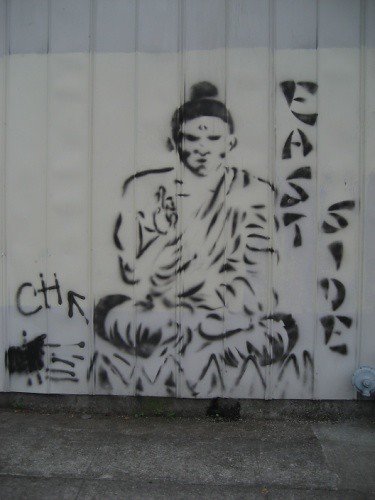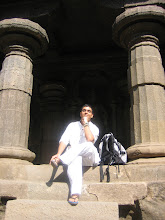In the Spring 2009 issue of Buddhadharma, scholar and Shambhala teacher Rita Gross, discusses this very same topic in a short essay called "Why We Need to Know our Buddhist History". Her thoughts on the matter happen to match up almost exactly with my own. An excerpt of the article (provided below) is also available online
Western convert Buddhists may know a few “family” legends unique to the particular type of Buddhism they practice, but many lack systematic training in the history of their newly chosen religious path. Many do not understand how their chosen lineage fits into the larger picture of Buddhism, an old, far-flung religion with many regional and historical variations. Each of the myriad Buddhist subgroups has its own story about how, when, and where Buddha gave the teachings on which its view and practices are based. These stories make claims that are difficult to reconcile with one another. Making sense of these stories can be difficult unless one has tools with which to understand the relevance of legend and myth.
The Dalai Lama has argued for years that Buddhism and modern science are compatible and that if science could definitely disprove some traditional Buddhist assertion, Buddhism would have to accommodate the new information. I would make the same arguments regarding modern historical knowledge. In its traditional literature, no form of Buddhism possesses a complete account of Buddhism’s entire historical development and its various cultural and sectarian permutations. This means that without some input from modern historical studies, no form of Buddhism can provide accurate historical knowledge for its practitioners.
All forms of Buddhism can welcome historical study as relevant and useful. Buddhist teachings have always told us that impermanence is a great, unalterable fact of our experience and that it is crucial for us to become comfortable with that fact. History is simply the study of how things change and develop, which is to say that history studies changing institutions and ideas. History studies impermanence, including the impermanent characteristic of Buddhist institutions, practices, philosophical systems, and sacred narratives.
Some practitioners claim that historical knowledge is irrelevant to them because they only want to meditate. But without knowledge of Buddhism’s rich and diverse history, practitioners and communities are vulnerable to fundamentalism and sectarianism. They assume that sacred narratives and legends are composed of historical facts and that the familiar stories found in their specific Buddhist tradition should be taken literally. Those accounts often contain a sectarian edge. They claim special relevance—based on tales of miraculous accomplishments—for the texts and teachers associated with a specific Buddhist tradition. While asserting superiority for their favorite form of Buddhism, these tales denigrate other forms of Buddhism...
 A while back, I was discussing the topic of sutras authenticity with some Dharma friends when one of them pointed out something interesting about Chinese Buddhism. The three texts which are perhaps the most influential in the Chinese traditions are the Awakening of Faith, the Sutra of Complete Enlightenment, and the Shurangama Sutra. These texts, are also quite possibly "apocryphal".
A while back, I was discussing the topic of sutras authenticity with some Dharma friends when one of them pointed out something interesting about Chinese Buddhism. The three texts which are perhaps the most influential in the Chinese traditions are the Awakening of Faith, the Sutra of Complete Enlightenment, and the Shurangama Sutra. These texts, are also quite possibly "apocryphal".Professor Jan Nattier, in a famous paper, put forth the theory that the Heart Sutra is actually a Chinese composition compiled from Indian sources. This theory has gained popularity among some although my personal belief is that it's NOT a Chinese composition but wholly Indian (See Bill Porter's(Red Pine's) discussion/refutation of this theory in his translation/commentary of the Heart Sutra). A good point that I'll come back to later was made by another good friend of mine who said of the Heart Sutra, "I don't care where it came from, it's an amazing, powerful, and awesome text". Heck yea.
Arguments over authenticity are nothing new. The question for Google-enabled, Amazon.com one-click purchasing, Wikimaniac Dharma practitioners is how to constructively deal with "The Sutra Problem". Although people have been debating/arguing these points ad nauseum since the time of the Buddha himself, this issue is particularly prominent in an age where we the ability to easy explore (or jump around if you prefer) different traditions.
I won't be so bold as to put forth a definitive answer or approach to The Sutra Problem. What I can do is share my experiences and throw out some thinking points that might be useful when swimming through oceans of scriptures...








1 comment:
Hi Kaios, thanks for your thoughts! You bring up great points. Actually, it sounds like something out of the Perfection of Wisdom Sutras: 'tradition' is not tradition, therefore it can be called tradition :)
In some ways tradition is such a blessing to have: it gives us a starting point, a path to follow, tools to approach our practice, a community to support us, etc. And yet, sometimes it can be a real hindrance too, in the case of gender equality as you brought it up.
So often, sometime that starts out as totally radical soon becomes 'tradition'. Just take the various colors and cuts of all the monastic traditions for example. It's all about the middle path I guess. In the Diamond Sutra, the Buddha tells Subhuti that we shouldn't attach to the idea of a spiritual practice and yet, how much more so should we not NOT attach to the path, for it is the source of peace and liberation.
Should have the second part up this weekend, been kind of busy lately with the day job. Thanks for reading!
Post a Comment